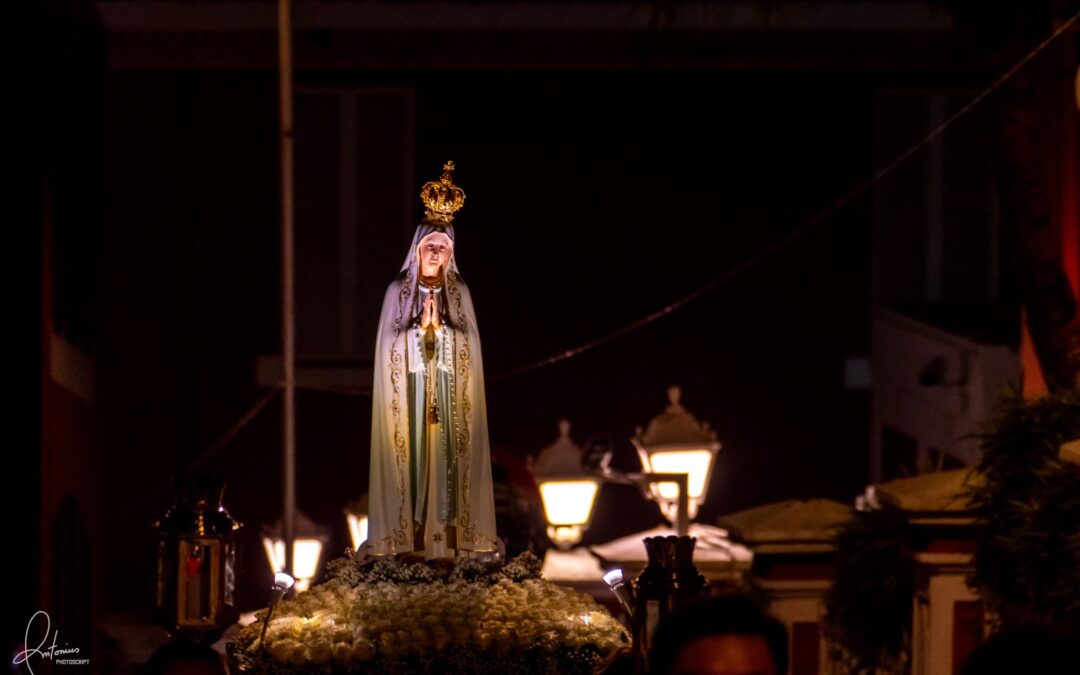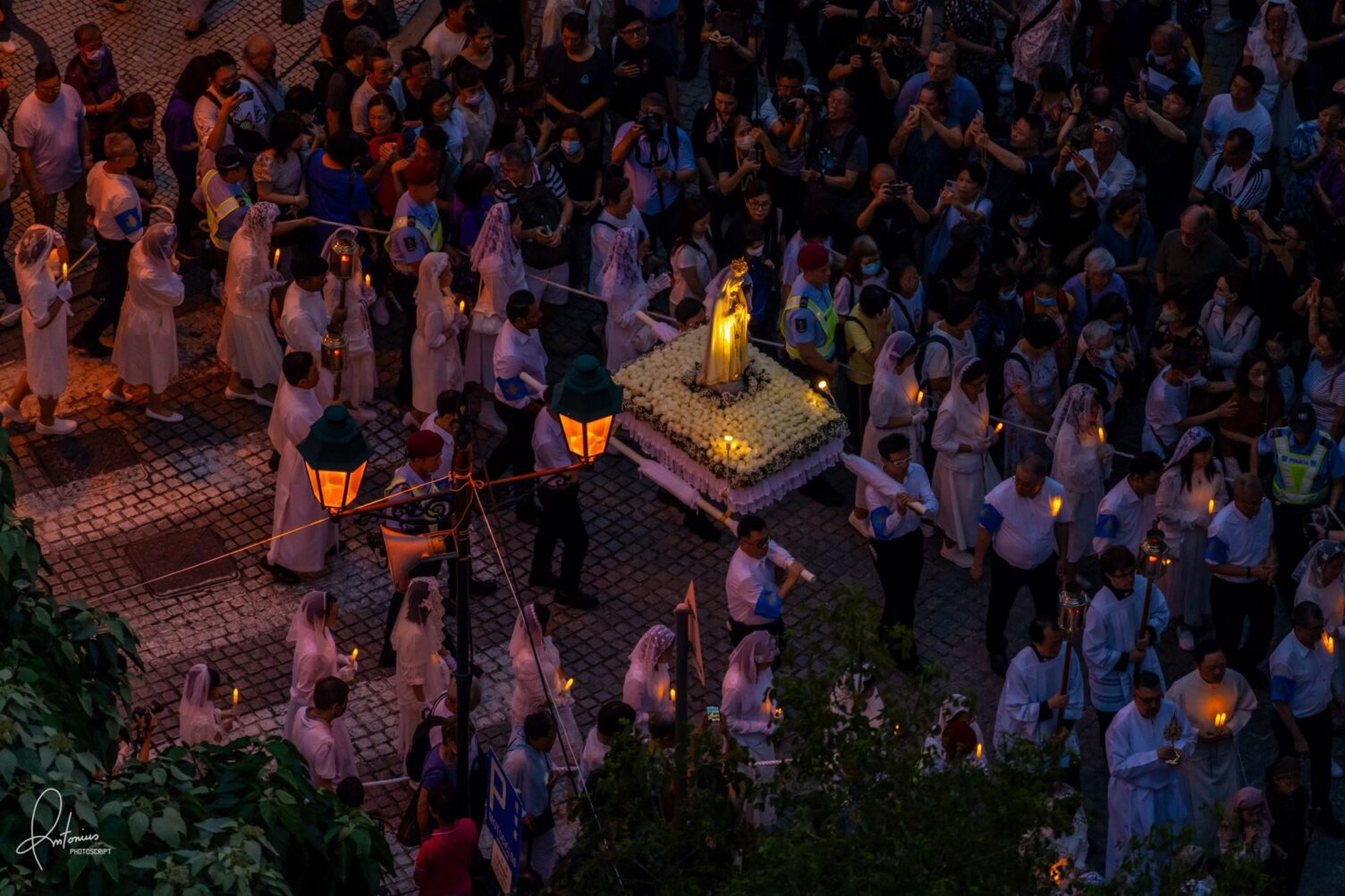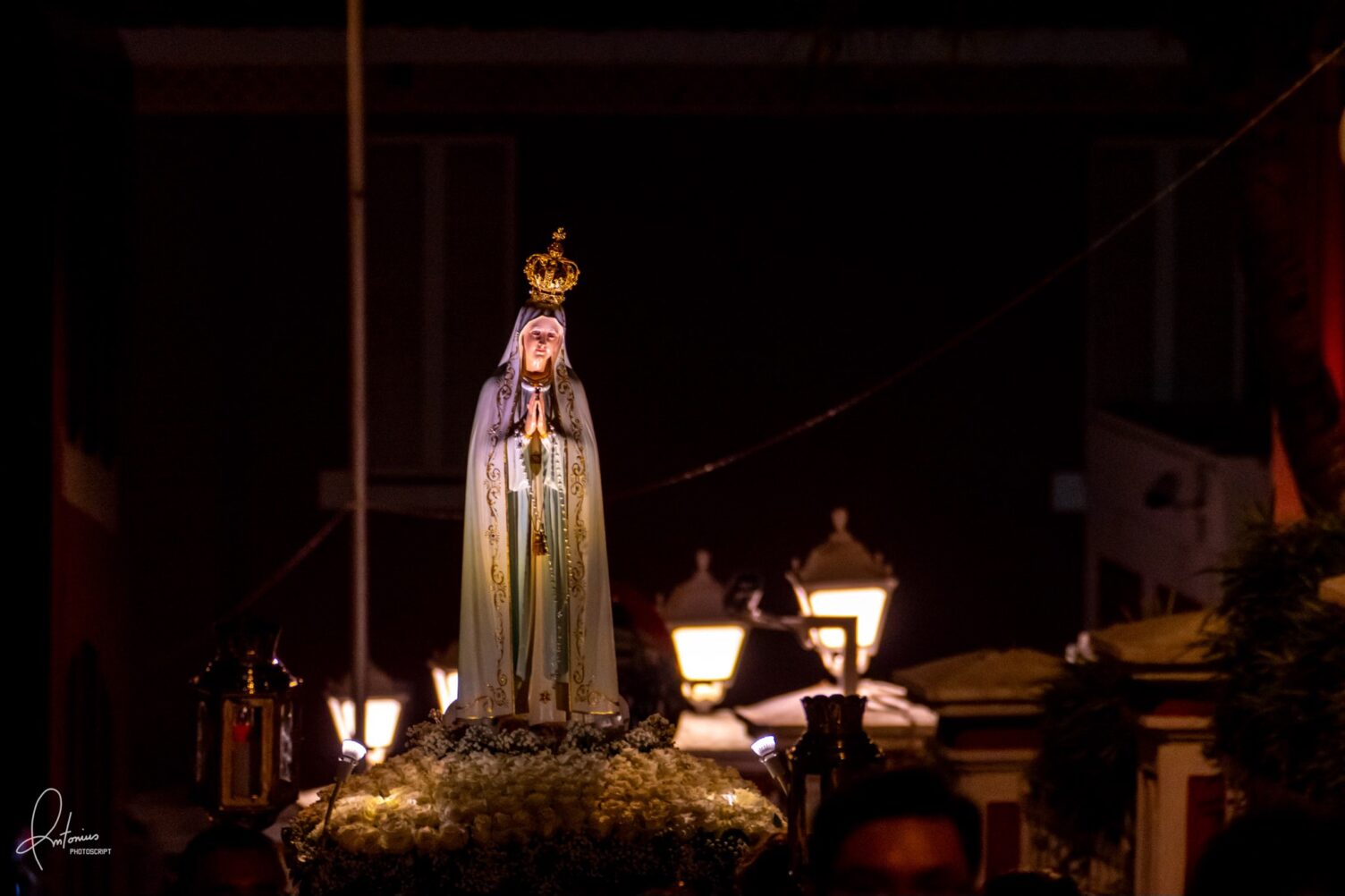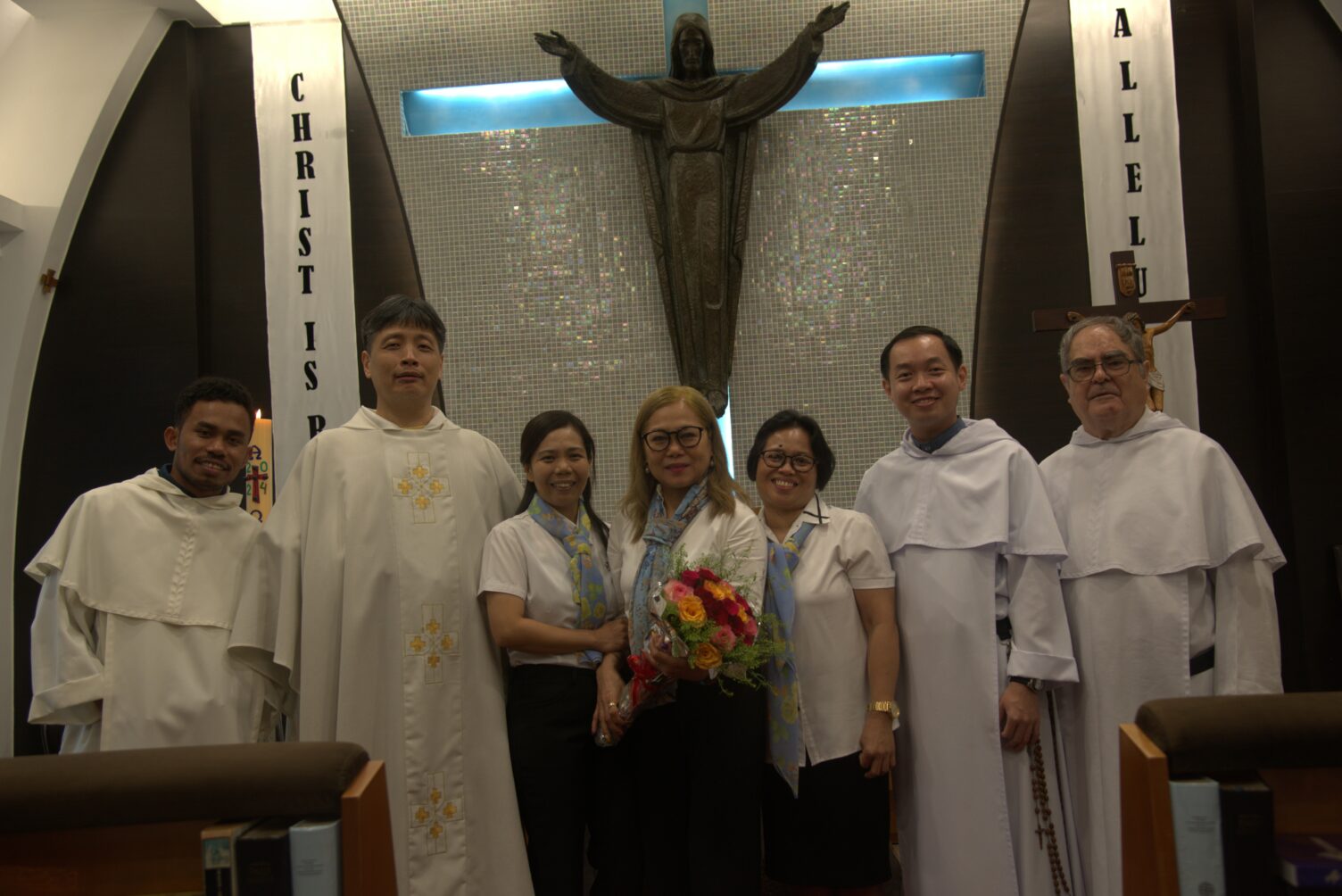

May 24 is something special for the Dominican Order. This day commemorates the first translation of the remains of Saint Dominic, who had been buried in the
Church of Saint Nicholas of the Vineyards at Bologna. When the tomb’s stone was removed, a pleasant odor emanated from the aperture, surprising all present. Many people saw this phenomenon. This year, the Priory decided to celebrate Mass at St. Paul School. Student brothers also joined in this Eucharistic celebration.



The traditional Procession of Our Lady of Fatima is held every year on the evening of May 13th in Macao and it has by now become part of the city’s list of Intangible Cultural Heritage. This year also, the procession started from St Dominic’s Church after the celebration of a Mass presided over by the Bishop, and journeyed through the streets of the city to the hill Chapel of Our Lady of Penha. Along the way, thousands of devotees accompanied the image of Our Lady of Fatima, while singing and praying the Rosary in three alternating languages (Portuguese, English and Chinese). Three children (two young girls and a boy), donned in Portuguese costumes, walked just behind the image: they represent the three sheep-tending children who witnessed the apparitions of the Virgin in Fatima in 1917. Close to the image also were the Bishop, some priests, and our Dominican community with the student brothers wearing their habits. The procession ended at Penha Chapel with the adoration of the Blessed Sacrament, a prayer of consecration to Our Lady and the solemn blessing from that suggestive hill overlooking Macao peninsula and Mainland China. Truly inspiring was to see the vast crowd of pilgrims engrossed in meditative silence and prayer while walking in the procession. Worth praising, too, was the excellent organization of the whole event, with the traffic order and safety of the participants ensured by the local police. May Our Lady of Fatima continue keeping under her maternal care the city of Macau, the entire Church and, needless to say, our Dominican community, which invokes her as their main Patroness.
Pictures: courtesy of Antonius Photoscript



The Priory recently celebrated the birthday of Br. Mendonça Mouzinho Filipe, O.P.
The community greeted him with the warmest wishes.
It was a joyous occasion that brought everyone together in celebration of community life and fraternity.

The Priory celebrated the birthdays of April-born brothers.
The brothers having their birthdays were Br. Paul Shan Tu, O.P and Br. Alphonso Ngei Kyaw Htay, O.P. The community greeted them with the warmest wishes.
It was a joyous occasion that brought everyone together in celebration of community life and fraternity.



April 21, 2024 was Fourth Sunday of Easter also known as Good Shepherd Sunday. On this day, Ms. Teresita S. Ganitoque OP, a member of Lay Fraternity of St. Dominic made her solemn profession in the hands of Ms. Leila M. Mortil OP, President of Lay Fraternity of Antorcha de Macau. The Friars of the Priory of St. Dominic delighted to host the celebration in their Chapel and welcomed Ate Teresita as a full-fledged member into the Dominican family.




International Cultural Carn ival 2024 was celebrated on April 20 at the Green Campus of the University of St. Joseph. It was opened to the public for the very first time. Student brothers participated at their respective countries’ food
ival 2024 was celebrated on April 20 at the Green Campus of the University of St. Joseph. It was opened to the public for the very first time. Student brothers participated at their respective countries’ food  booths and dance.
booths and dance.
























